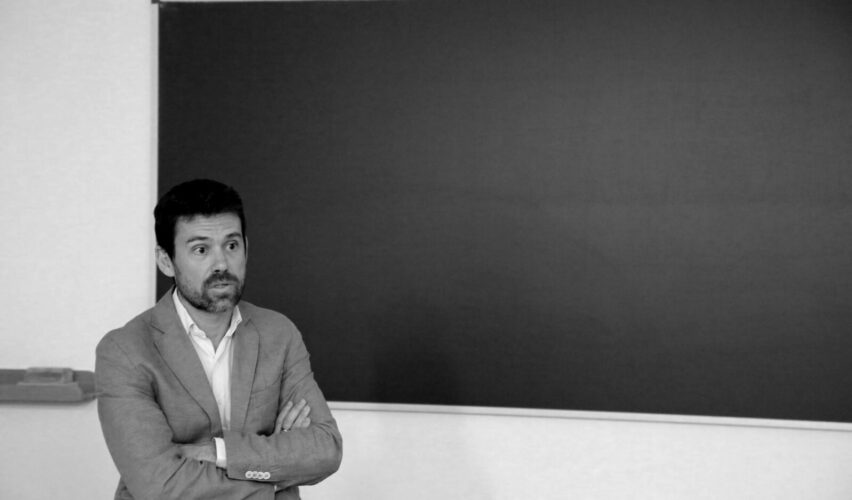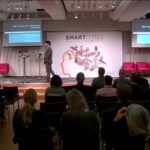Cities are phenomenal innovation platforms, as explained in this interview for the Master in City Sciences at Politechnic University of Madrid (UPM), whose original content can be found here.
Before becoming a professor, Daniel Sarasa (born 1972) was a student at Master in City Sciences (MCS), so he can give us both perspectives about the master’s degree. He is Smart City Program Manager at Zaragoza City Hall and co-author of “Zaragozá’s Open Government Strategy 2012-2015. Towards a Smart Citizenship”. Moreover, he is editor of the urban innovation website Urbequity.yt
MCS: Why did you decide to study the MCS?
I was seeking a masters in this area, that was for executives, compatible with my job schedule and located near Zaragoza (where I lived). Since I joined Zaragoza’s Digital Mile team back in 2008, I felt that my telecom background only gave me a partial understanding of the city. I needed more knowledge about energy, urbanism, participation, mobility, entrepreneurship… and with the MCS I found a different point of view about Smart Cities, more holistic and complete, thanks to its comprehensive and rich program. Besides, the MCS has a great entrepreneurial atmosphere. For the master’s degree, I wrote a paper which explored the construction of public-private partnerships on the subject of sharing big data in cities.
MCS: And now you are a professor at the MCS. What is the main concept that students should learn from your classes?
The main concept is that Smart Cities are platforms for innovation, and perfect tools for technological development. I give a lot of importance to energy, social networking, and financial data in my lectures… these concepts are essential to understanding the best way to connect cities with citizens, which should be the main purpose of every Smart City project.
MCS: Why is so important to study this masters?
Making cities smarter is a very difficult challenge. It requires a holistic perspective and you need a comprehensive knowledge about Urban Design, Big Data, the Internet of Things, Sustainability, and so on… I previously had years of experience in the field, but the MCS brought me very important insights that addressed and developed my professional career.
If we’re talking about job opportunities, the holistic view of the masters is the main strength. Companies and governments are just beginning to realize that they need people with an inclusive vision of cities that are trained in fields such as energy, urban planning, economy, data, etc.
MCS: What other projects related to the Smart Cities field are you participating in?
The most paradigmatic Project is my participation with the development of the Zaragoza Citizen Card, an all-in-one digital tool that give access to all the public services in town, such as swimming pools, libraries, public transport, and so on. We’ve already made 220,000 cards.
I also participate in a project about KPIs for Smart Cities, with the cities of Zaragoza, Vienna and Rotterdam, among others. It is quite an interesting adventure.
At the academic level, I am collaborating on a book about Smart Cities with the University of Florida.














